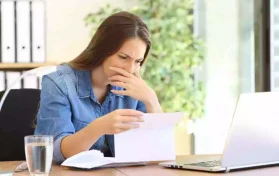
The Internal Revenue Service, commonly known as the IRS, is a federal agency of the United States Government responsible for collecting taxes and enforcing tax laws. The IRS was created in 1862, and it has been part of the Treasury Department since 1953. It is one of the largest employers in the world, with more than 100,000 employees. The IRS’s mission is to provide taxpayers in America with top-quality service by ensuring they know and meet their tax responsibilities and executing the law with fairness and integrity to all people.
What are the functions of the IRS?
The IRS is responsible for a variety of tasks, including:
Collecting taxes from individuals and businesses
One of the most critical tasks of the Internal Revenue Service is to collect taxes for the United States. This includes collecting individual income taxes, payroll taxes, corporation income taxes, and excise duties on certain goods. The IRS also works to recover tax debts owed to the federal government by taxpayers who do not comply with tax law or pay their outstanding balances in full.
Executing tax laws
The IRS is the body responsible for executing the United States’ tax laws. This includes auditing taxpayers to ensure that they are complying with tax regulations, investigating cases of suspected tax fraud, and issuing penalties and fines to those who violate the law.
Providing taxpayer education and assistance
The IRS provides education and assistance to taxpayers on various topics, including filing taxes, understanding your tax obligations, and claiming deductions and credits. The IRS also operates a call center where taxpayers can get help with their questions or problems.
Managing federal government finances
As part of its responsibility in managing federal government finances, the IRS collects money owed to the government, processes payments from federal agencies, and manages the government’s debt portfolio.
Who runs the IRS?
The Internal Revenue Service is headed by a commissioner who the President nominates, which then the Senate confirms. The commissioner stays in office for a five-year term. The office of the Commissioner of IRS was established by Congress in 1962. It was later restructured through the IRS Restructuring and Reform Act of 1998. Charles P. Rettig, the current IRS commissioner, took over the office in 2018. The IRS Oversight Board, created in the IRS Restructuring and Reforms Act of 1998, oversees the IRS. The board’s mandate is to provide expertise and long-term guidance to help the IRS meet its mandates to taxpayers. The Internal Revenue Service is part of the Treasury Department, and its employees are responsible to the Secretary of the Treasury.
How does the IRS work?
The IRS has several different divisions that are responsible for specific tasks. These divisions include:
Wage and Investment (W&I) Division: This division is responsible for collecting individual income taxes, payroll taxes and managing the government’s debt portfolio.
Business & Industry (B&I) Division: This division is responsible for auditing taxpayers and investigating cases of suspected tax fraud.
Tax Exempt & Government Entities (TE/GE): This division is responsible for providing education and assistance to taxpayers on a variety of topics, including how to file taxes and understanding your tax obligations.
Collection Enforcement: This division is responsible for recovering tax debts that are owed to the federal government by taxpayers who do not comply with tax law or pay their outstanding balances in full.
Office of Professional Responsibility (OPR): This division is responsible for investigating cases where the conduct of an IRS employee has been called into question.
Statistics of Income Division: The mission of this division is to provide accurate, objective data that will support informed policy decisions on taxation.
Where does the money go?
The federal government gets the majority of its revenue from individual income taxes and payroll taxes. Other sources include corporate income tax, excise duties, and customs fees. The taxes collected are used to fund services provided by the federal government like public education, healthcare programs including Medicaid and Medicare, among others.
How may you interact with the IRS?
All taxpayers in the United States interact with the IRS whether they are cognizant of it or not. The most frequent way is through the filing of individual income taxes. No matter how you file your returns, they eventually end up with the Internal Revenue Service, and if you need a refund, the IRS will process and issue it.
Another way you may have to deal with the Internal Revenue Service is if you have an audit. Most people find audits intimidating, and they can be distressing for many. However, if you receive a notice in the mail from the IRS about your tax filing, they are not accusing you of anything; rather, they just want to make sure that everything is correct before you submit your tax forms.
There are also other ways that taxpayers interact with the IRS, such as when you are applying for loans or credit cards, and some states require reporting of income earned on investments like real estate sales. There may even come a time where you have to deal with the IRS because maybe someone has stolen your identity and has gone ahead to use it to file fraudulent returns. In such an instance, you have to deal with the IRS directly, to resolve the issue.
How can you contact the IRS?
If you need to get a hold of the IRS, you can do so a few ways. The most common way is through their website that has all sorts of information as well as online tools to help you file your taxes or conduct an audit. You can also call them on the phone, but keep in mind that they are swamped during tax season, and it may take some time to get through to someone who can help you. Before calling, ensure you have all your information ready, including Individual Taxpayer Identification Number, Social Security Number, filing status, birth dates, and details of previous correspondence. All this information will enhance efficiency because the IRS representative you will be talking to will identify you more quickly and help you better. If you need more immediate assistance, you can visit one of their walk-in sites located across the United States.





